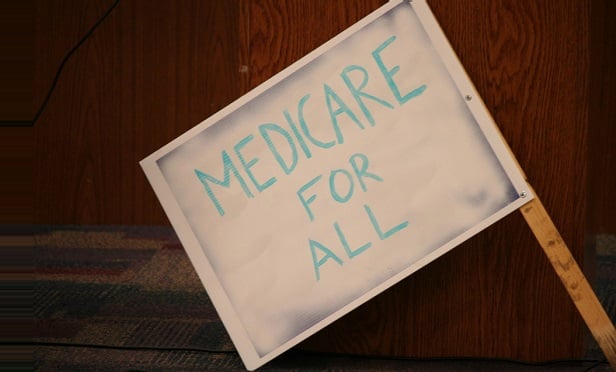 For every candidate with a clear Medicare for All proposal in mind, another uses the phrases as a proxy for voter frustration. (Photo: Shutterstock)
For every candidate with a clear Medicare for All proposal in mind, another uses the phrases as a proxy for voter frustration. (Photo: Shutterstock)After decades in the political wilderness, “Medicare-for-all” and single-payer health care are suddenly popular. The words appear in political advertisements and are cheered at campaign rallies—even in deep-red states. They are promoted by a growing number of high-profile Democratic candidates, like Alexandria Ocasio-Cortez in New York and Rep. Beto O'Rourke in Texas.
Republicans are concerned enough that this month President Donald Trump wrote a scathing op-ed essay that portrayed Medicare for all as a threat to older people and to American freedom.
Recommended For You
Complete your profile to continue reading and get FREE access to BenefitsPRO, part of your ALM digital membership.
Your access to unlimited BenefitsPRO content isn’t changing.
Once you are an ALM digital member, you’ll receive:
- Breaking benefits news and analysis, on-site and via our newsletters and custom alerts
- Educational webcasts, white papers, and ebooks from industry thought leaders
- Critical converage of the property casualty insurance and financial advisory markets on our other ALM sites, PropertyCasualty360 and ThinkAdvisor
Already have an account? Sign In Now
© 2025 ALM Global, LLC, All Rights Reserved. Request academic re-use from www.copyright.com. All other uses, submit a request to asset-and-logo-licensing@alm.com. For more information visit Asset & Logo Licensing.








